The ideal age for the birth of a child is not just a figure in a passport and the physiological readiness of a woman’s body is a number of factors, among which physiological, psychological and social are distinguished.

Physiological factors
The appearance of a girl's menstruation indicates that her eggs are already ready for fertilization. But this does not mean that her organs are ready to bear and give birth to a child. The burdens associated with bearing and giving birth to a child in adolescence are fraught with complications in the heart and kidneys, and there is also the possibility that the pelvic bones will not be able to separate properly, which is a direct contraindication for natural childbirth. Girls grow and develop on average up to 18 years old, this age and you can focus on how to start.
Is there an extreme limit?
As long as there is menstruation and there are no weighty contraindications for health, it is theoretically possible to give birth. But at the same time, one must not forget to connect common sense. From 25 years old, the aging process starts in the body. A healthy lifestyle, proper nutrition, a culture of sleep and rest can delay visual aging, but you can’t go anywhere by nature - by the age of 30, girls begin to have progesterone deficiency, testosterone levels increase accordingly, which is a risk factor for gestation. A girl under 30 years of age, in comparison with more mature women, has more elastic birth canals and mobile pelvic bones, which also leads to the conclusion - from the point of view of physiology, the best age for giving birth to children is 20-25 years. The age of 18-35 years is considered conditionally safe.
What's up with dad?
The participation of the male half in the physiological part comes down to its genetic material, that is, to the quality of the sperm.
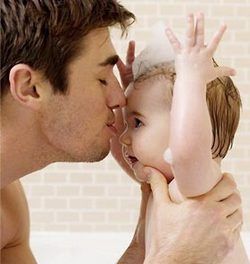 If in a woman all eggs are formed at the stage of intrauterine development and new ones do not appear, then in men everything is much more joyful - sperm can change their qualities depending on his lifestyle. That is, if at 50 years old a man does not drink, smoke or destroy himself in other ways, then his genetic material is not inferior to the spermatozoa of a 25-year-old boy. Such a characteristic as sperm motility also does not directly depend on age, but in practice it is lower in 40-year-olds than in 30-year-olds. This means that a 40-year-old man needs to make a little more effort to fertilize, but this will not affect the further development of the fetus.
If in a woman all eggs are formed at the stage of intrauterine development and new ones do not appear, then in men everything is much more joyful - sperm can change their qualities depending on his lifestyle. That is, if at 50 years old a man does not drink, smoke or destroy himself in other ways, then his genetic material is not inferior to the spermatozoa of a 25-year-old boy. Such a characteristic as sperm motility also does not directly depend on age, but in practice it is lower in 40-year-olds than in 30-year-olds. This means that a 40-year-old man needs to make a little more effort to fertilize, but this will not affect the further development of the fetus.
If there is no upper limit for potential daddies, then there is still a lower limit.
A teenage dad risks transmitting defective genes to the baby and increases the risk of having a baby with low birth weight and developmental defects, as his own reproductive system has not yet been properly regulated.Therefore, we will consider a physical start for a potential dad 16 years old, and preferably 18, so as not to violate the framework of the law.
We figured out the physiology, we turn to a less tangible point - the psychological readiness of future parents for the appearance of the baby.
READ ALSO:How to find out if your husband wants a baby
Psychological factors
The birth of the first child implies a review of the usual way of life and requires a restriction of personal life. You can change jobs, divorce your spouse, but having decided to have a child, it is already impossible to reverse the time continuum - the child stays with us forever.
Parenthood is a new completely different way of life, where everything is built around the baby.
The heroine of Julia Roberts in the film “Eat Pray Love” said: “Having a baby is like getting a tattoo on your face. Seriously and for a long time. ”, - This is a good anti-example when a woman of mature age is not psychologically ready for motherhood.
Such an unpreparedness can give rise to a number of internal conflicts and hidden claims to the child related to the fact that the mother did not manage to cash in on her own life. These conflicts are likely to be offset by children's laughter and emotional returns from the baby.
It also happens that a mother can not immediately dissolve in motherhood. Psychological unpreparedness spills over into postpartum depression, mistakes in education and family dysfunction.
The psychological readiness of future parents is associated with the physiological age only indirectly, and more depends on the available social experience.
There are a number of tests to determine the psychological readiness to become parents. It is useful to go through them in order to outline for yourself the issues that you need to work on.
Social factors
You can start a baby when you can feed him, buy nose drops, diapers and a minimum set of toys. A child does not need a three-story villa - he needs caring loving parents. Material goods are long and difficult to acquire, but can be easily and quickly lost.
Future mothers and fathers will feel more confident if, by the time of the birth of the child, they will already understand that their education, specialty and experience are in demand by society, that is, show a certain social result. In our country, this is already clear by the age of 23-25.
The presence of grandparents supposedly always ready to help should not be a decisive social factor for the birth of the first child, since grandparents do not always live up to expectations.
In the situation with the second child, the help of the grandmother, who has proven herself well with the firstborn, can be a significant pushing factor - to have time to give birth to the second while the grandmother is still young and can help.
READ ALSO:the role of grandparents in raising children
More about the second child
The rules for the birth of a second child are not much different from the rules for the first with the only difference that The woman’s body is restored after childbirth for about 3 years. However, it is this age difference between children that occurs infrequently.
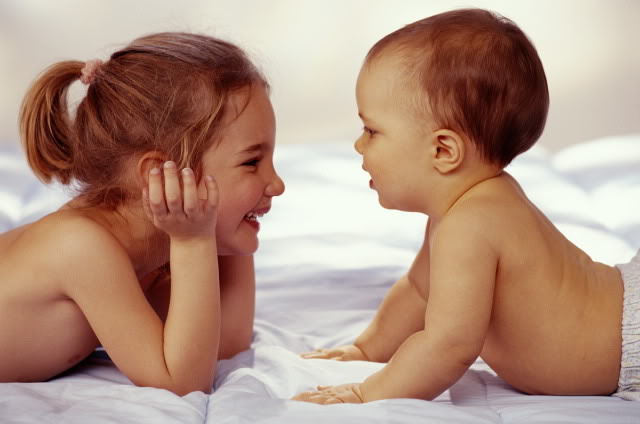
Usually parents prefer either to “shoot faster”, i.e. give birth to the weather to quickly survive all the difficult moments of early education, or vice versa they wait until the first child reaches school age.
Both approaches with pluses and minuses.
Weather
The advantages of educating the weather:
- Raising the weather, parents create the effect of a kindergarten - children have the same toys, activities, daily routine, older children play with each other, allowing parents to focus on other issues.
Cons relate only to parents:
- Mom does not have time to recover from childbirth;
- Two children are always heavier than one - both physically and financially;
- To work, to have a hobby with two children is almost impossible. Usually, mom is thrown overboard of sociocultural life for at least five years.
- The simultaneous illnesses of two children are able to unsettle even the most morally stable parents.
Children with a significant age difference
Benefits:
- Mom’s body is fully restored;
- With proper upbringing, an older child helps with a younger one, or at least already has the strength to look after herself;
- Each of the children in due time receives in its pure form more attention of parents and this attention is individualized.
Disadvantages are also available:
- The process of raising children to their feet is more extended in time;
- Problems may arise with the adaptation of the oldest child to new conditions, where it is not him, but the youngest child that accumulates the care and attention of parents (Why is the oldest child jealous of the youngest? What should parents do?);
- Children grow up under one roof, but not together. Friendship between them can begin only during the growing period, or not begin at all.
READ ALSO: Can I get pregnant immediately after giving birth? How to protect yourself?
There is no single correct algorithm by which the optimal age for the appearance of a child can be calculated. Ideally, you need to have time to give birth to all children from 20 to 30 years old, while being a psychologically mature person, getting an education, having work experience and living in abundance. In practice, this rarely happens, but our children do not become less desirable and beloved.
READ ALSO: How to calculate the best and most favorable days for conception


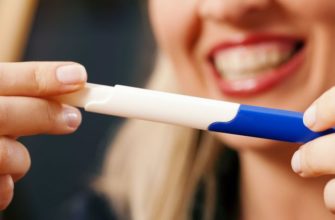
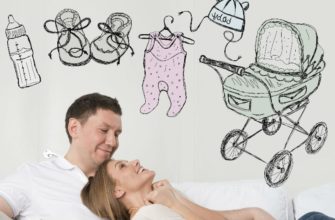
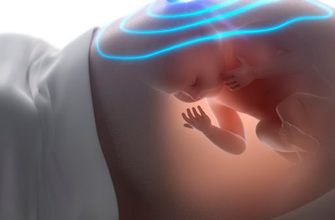




I believe that the best ratios of ages are for men about 30 years old, and for women somewhere around 23-25. During this period, they were maximally formed as individuals, matured and ready to have children.
For me, the optimal age for the birth of children is 20-30 years old, and I admit up to 35 years old if there are no health problems. But as practice shows, just after 30 years, malfunctions in the body happen and it becomes more difficult to bear a child. I myself gave birth to the first at 26 years old, the second at 29, the difference in children is 4 years old and it suits me perfectly, it would be more difficult with the weather. And the body needs rest too. My opinion, give birth when you are confident in your abilities in raising future children, there is financial stability. And do not listen to others, so that it’s time to get kids already. Then such people will listen, and they will reproach the children, they say they have not been dogged or something else.
Women, probably yes, it is better to start somewhere from 18-20. But father - there are two options. 1. If a person and his race follow the path of evolution, ie improvement of generic qualities with each generation, it is necessary to work on this very improvement, and the father, of course, must be very mature. As written in the article, in 50 years it is quite possible. In any case, by this age it already becomes clear how healthy the heredity (spiritual, physical, moral, intellectual, etc.) of such a man is and how much he has grown in relation to himself 20 years old. In 20-30 years it is difficult to understand. In many ways, the healthy physical functioning of the body is based on the short life of the mechanism. 2.The second option, the genus is degrading. Here, of course, we must hurry, while heredity is not yet aggravated by the lifestyle and thinking of this representative of the genus.
Why am I talking so confidently about this. I will try to argue. The man goes ahead, he is a scout, discoverer, test taker. Nature on it leads a natural selection. 20-30 years, and in fact 5-15 years from a conscious age - the period is not enough for a man to somehow participate in such a large-scale experiment of nature. A woman fixes, retains acquired qualitative characteristics, it is contraindicated for her to be exploited for a long time, and in evolution she most likely participates only indirectly, through the upbringing of children, but not through the transfer of changed genetic material (this is my opinion). Thus, a 50-year-old (or maybe older) male from an evolving genus and a 20-30 year old healthy woman are a good combination for the subsequent evolution of the male genus. In general, men, there is no need to rush if you want your children to be better than you and have better starting positions in a difficult life on this wonderful dangerous planet.